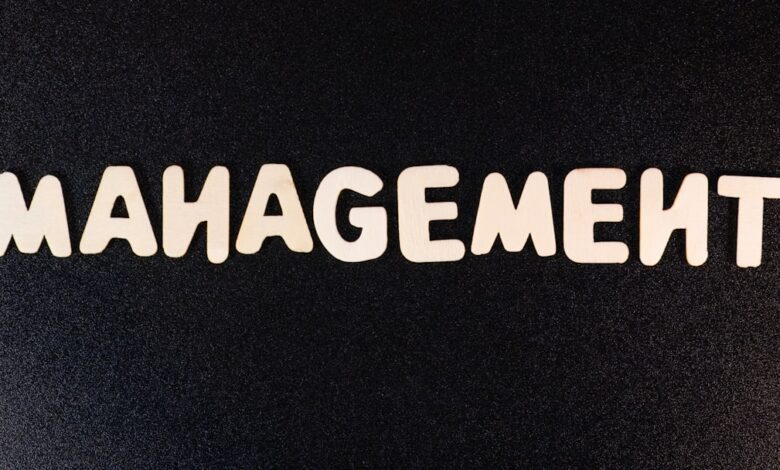Debt Dynamics: Strategies for Personal Management and Economic Impact

In today's fast-paced financial landscape, managing debt has become a pressing concern for individuals and economies alike. As personal debt levels soar, the repercussions extend beyond individual finances, influencing economic growth and stability on a broader scale. This article explores a multifaceted approach to debt management, providing readers with actionable strategies to regain control over their finances while also examining the wider economic implications of high debt levels. From negotiating better repayment terms with creditors to understanding the role of credit counseling, we will delve into the resources available for effective debt management. Additionally, we will highlight the delicate balance between leveraging debt for investment and the potential risks involved, as well as the unique challenges posed by student loan debt on financial planning. Finally, we will consider how corporate debt impacts stock performance and how governments navigate national debt, offering insights into its economic consequences. Join us as we unpack these critical topics and empower you to make informed financial decisions.
- 1. **Empowering Debt Management: Strategies to Tame Personal Finances**
- 2. **The Debt Dilemma: Understanding Its Economic Ripple Effects**
1. **Empowering Debt Management: Strategies to Tame Personal Finances**
Managing personal debt effectively is crucial for achieving financial stability and long-term economic well-being. Here are several strategies to empower individuals in taming their personal finances:
1. **Create a Comprehensive Budget**: Developing a detailed budget is the foundation of effective debt management. By tracking income and expenses, individuals can identify areas where they can cut back and allocate more funds toward debt repayment.
2. **Prioritize Debts**: Not all debts are created equal. It can be beneficial to categorize debts based on interest rates and urgency. The avalanche method, where debts with the highest interest rates are paid off first, can save money over time. Alternatively, the snowball method, which focuses on paying off the smallest debts first, can provide motivational boosts.
3. **Establish an Emergency Fund**: Building a small emergency fund can prevent individuals from accruing additional debt when unexpected expenses arise. Even a modest amount saved can provide a cushion and reduce reliance on credit.
4. **Negotiate with Creditors**: Many creditors are willing to work with borrowers who are proactive about their financial situations. By reaching out and negotiating for lower interest rates, extended payment plans, or potential settlements, individuals may find more manageable repayment options.
5. **Consider Debt Consolidation**: For those with multiple debts, consolidating them into a single loan with a lower interest rate can simplify payments and reduce overall interest costs. This strategy can make repayment more manageable and help individuals stay on track.
6. **Utilize Credit Counseling Services**: Professional credit counseling can provide valuable guidance and support. Counselors can help create personalized debt management plans, educate individuals on financial literacy, and negotiate with creditors on behalf of their clients.
7. **Limit New Debt Accumulation**: While working on paying down existing debts, it’s essential to avoid accumulating new debts. Establishing spending limits and refraining from using credit cards for non-essential purchases can help maintain focus on debt repayment.
8. **Seek Additional Income Sources**: Exploring options for side jobs, freelance work, or selling unused items can provide extra income that can be directed toward debt repayment. This additional cash flow can accelerate the journey toward financial freedom.
By implementing these strategies, individuals can take control of their personal finances, reduce their debt burden, and build a more secure financial future.
Managing and reducing personal debt is a critical skill that can significantly affect an individual's financial health and overall quality of life. One effective strategy is to create a comprehensive budget that tracks income and expenses, allowing individuals to identify areas where they can cut back and redirect funds toward debt repayment. Prioritizing debts, particularly those with the highest interest rates, can help minimize the total interest paid over time. Additionally, individuals may consider consolidating their debts, which can simplify payments and potentially lower interest rates.
Negotiating with creditors is another valuable approach. Open communication can lead to better repayment terms, such as lower interest rates, extended payment periods, or even debt settlements. It is essential to prepare for these discussions by understanding one’s financial situation and being clear about what adjustments are necessary. Documenting all agreements and maintaining a good relationship with creditors can also facilitate future negotiations.
Credit counseling services play a vital role in debt management, offering expert advice and creating structured debt management plans. These services can help individuals understand their options, develop realistic repayment strategies, and provide educational resources to foster better financial habits. However, it is crucial to choose a reputable counseling agency to avoid potential scams.
Investing using debt can be a double-edged sword, offering potential rewards but also considerable risks. While leveraging debt for investment can amplify returns, it also increases exposure to losses, especially if market conditions shift. Therefore, careful assessment of investment opportunities and personal risk tolerance is essential before proceeding.
Furthermore, student loan debt has profound implications for financial planning. Graduates often face challenges in saving for retirement, purchasing homes, or investing in their futures due to monthly loan obligations. This debt can influence career choices and life decisions, making it vital for borrowers to explore repayment options, such as income-driven repayment plans or loan forgiveness programs.
Corporate debt also has a significant impact on stock performance. High levels of corporate borrowing can strain a company’s financial stability, affecting investor confidence and stock prices. Conversely, when used strategically for growth and expansion, corporate debt can enhance profitability and shareholder value.
Lastly, governments manage national debt through various fiscal policies, including taxation and public spending adjustments. The implications of national debt on economic growth are complex; while borrowing can stimulate growth during recessions, excessive debt levels may lead to higher interest rates and reduced private investment. Balancing these factors is crucial for sustainable economic health.
2. **The Debt Dilemma: Understanding Its Economic Ripple Effects**
High levels of personal and corporate debt can create significant ripple effects throughout the economy. When individuals struggle with debt, they often reduce their spending to meet repayment obligations, leading to lower consumer demand. This decrease in consumption can slow economic growth, as businesses face declining sales and may respond by cutting jobs or reducing investments. Furthermore, high personal debt levels can limit individuals' ability to save, hindering long-term financial stability and reducing overall economic resilience.
On a corporate level, excessive debt can lead to financial distress, especially in times of economic downturns. Companies burdened with heavy debt loads may find themselves unable to invest in growth opportunities or innovate, resulting in stagnation. Additionally, when firms default on their debts, it can lead to a ripple effect impacting creditors, employees, and shareholders, creating broader economic instability.
Moreover, the interplay between personal and corporate debt can influence credit markets. If consumers default on loans or reduce spending, businesses may experience a decline in revenue, leading to increased defaults on corporate debt. This interconnectedness can contribute to tighter credit conditions, making it harder for both individuals and businesses to secure financing.
Policymakers also need to consider the implications of high debt levels on economic growth. When governments assume significant debt to stimulate the economy, it can lead to concerns about fiscal sustainability in the long term. High national debt levels may necessitate higher taxes or reduced public spending, which can further constrain economic growth and affect the overall economic landscape.
In summary, the debt dilemma extends beyond individual balance sheets, influencing economic growth, corporate health, and national fiscal policies. Understanding these interconnected effects is crucial for developing effective strategies to manage and reduce debt while promoting sustainable economic expansion.
In conclusion, effectively managing and reducing personal debt is essential not only for individual financial well-being but also for the broader economic landscape. By employing strategic debt management techniques, such as careful budgeting and negotiating favorable repayment terms with creditors, individuals can regain control over their finances and mitigate the adverse effects of high debt levels on economic growth. Furthermore, the support of credit counseling services can provide valuable guidance, helping borrowers navigate their financial challenges more effectively.
While leveraging debt can offer opportunities for investment, it is crucial to weigh the associated risks against potential rewards, especially in an environment where student loan debt significantly impacts long-term financial planning. Similarly, the interplay between corporate debt and stock performance underscores the need for businesses to manage their liabilities prudently.
At a macroeconomic level, governments face the complex task of managing national debt, balancing the need for fiscal responsibility with the necessity of stimulating growth. As we navigate the intricacies of both personal and national debt, understanding these dynamics is vital for fostering a healthier financial future for individuals and economies alike. By adopting informed strategies and seeking assistance when needed, we can work towards a more sustainable approach to debt that supports both personal aspirations and economic stability.





